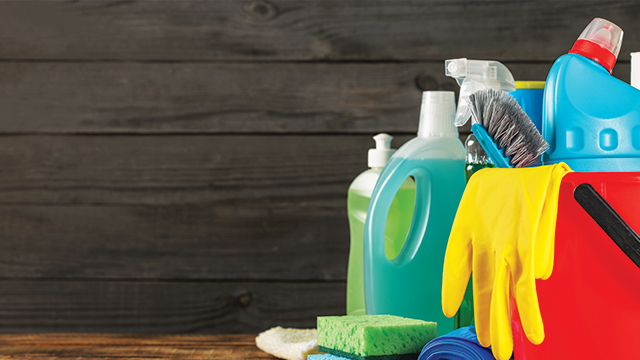Jakarta (Greeners) – After months of living in the pandemic, we are now developing a new habit of cleaning. Some of us might do our cleaning chores more religiously. We are using more cleaning products to makes us feel safer against the virus. No wonder, during the beginning of the pandemic, everyday household cleaning products are among the items that are out of stock in the grocery store. We might feel safer with piles of cleaning products at home. However, are these cleaning products safe for the environment?
According to Muryanto, Biomass Energy and Environment researcher from Lembaga Ilmu Pengetahuan Indonesia, The Indonesian Academy of Sciences, the answer is: not so much.
Cleaning products like surface cleaners and laundry detergent often contain non-renewable chemicals that produce carbon emission. One of the harmful chemicals is called surfactant. Surfactant molecules are capable of clearing out impurities from the garment and various surfaces. However, in the typical Indonesian grocery store, cleaning products often used petroleum-derived surfactant.
“As surfactant uses fossil fuel as the raw material, carbon emission is inevitable when producing these cleaning supplies. Every product produces a carbon footprint, carbon emission, both in the process of production also when it is being used at home. The more these products use fossil fuel as raw material, the more carbon footprint it produces,” explains Muryanto to Greeners, Friday (11/9/2020).
Also read: Indonesia Turn To Blue Carbon To Speed Up Reducing Carbon Emissions
Plant-derived Surfactant for More Environmentally Friendly Cleaning Products
Thankfully, nowadays, the industry is catching up. Companies start to offer alternative ingredients to meet the demand for environmentally friendly cleaning products. Cleaning products start to use plant-derived surfactants, also known as “natural surfactant.” These plant-derived surfactant use palm oil and other biomass fuels as opposed to fossil fuel.
“When we change the raw material from fossil fuel to palm oil or other biomass fuels undoubtedly, the carbon emission will also be reduced,” says Muryanto.
Accordingly, multinational consumer goods company, Unilever announces that they will no longer using fossil fuel raw material and starts to entirely replace them with renewable and environmentally friendly ingredients per 2030. Unilever admits that laundry detergent and other cleaning products produce 46% of their total carbon emission.
Also read: Jokowi: Indonesia Contributes Largest Carbon Emission For The World This Year
Peter ter Kulve, Unilever President of Home Care, on their press release, Wednesday (2/9/2020), explains their willingness, as part of the industry, to cut their dependency toward fossil fuel. It includes avoiding petroleum-derived components as raw material.
This initiative is part of Unilever’s Clean Future program. The program aims to build a sustainable economy as well as reducing carbon footprint. They assumed the replacement of cleaning supplies’ raw materials would cut emissions they produce by 20%. Moreover, Unilever invests 1 billion euros in developing biotechnology research and carbon dioxide utilization. This fund is also used to create biodegradable and water-efficient products as well as to cut the use of virgin plastic by half in 2025.
Writers: Dewi Purningsih, Ida Ayu Putu Wiena Vedasari
Editor: Ixora Devi


















































